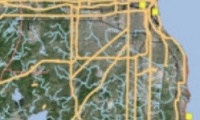EPIGRIDS Transmission System Models

Technology Description:
The University of Wisconsin-Madison (UW-Madison) and its partners will develop realistic transmission system models and scenarios that will serve as test cases to reduce barriers to the development and adoption of new technologies in grid optimization and control. The EPIGRIDS project aims to construct realistic grid models by using software to emulate the transmission and generation expansion decision processes used by utility planners. This synthetic model development will utilize Geographic Information Systems (GIS) data on population density, industrial and commercial energy consumption patterns, and land use, over sizes ranging from the city-level to continental-scale. In order to test the robustness of the system’s solutions, it will allow users to tailor specific data sets and scenarios to challenge particular aspects of optimization and control algorithm development. Flexible methodologies for data set construction and connecting features of these data sets to geographically described energy use and land use constraints will enable collaborative development of new models, far beyond those directly delivered by this project.
Potential Impact:
If successful, UW-Madison's project will accelerate the development of new power system optimization algorithms by enabling more comprehensive and transparent testing. New grid optimization algorithms could increase the grid’s resiliency and flexibility, improving its security during extreme weather and other threats. Moreover, the team’s technology could enable greater integration of renewable electricity onto the grid, which would help reduce reliance on carbon-emitting, fossil fuel generation. Finally, the project could lead to greater efficiencies for grid operators and power generators and therefore help reduce operating costs.
Contact
ARPA-E Program Director:
Dr. Richard O'Neill
Project Contact:
Bernard Lesieutre
Press and General Inquiries Email:
ARPA-E-Comms@hq.doe.gov
Project Contact Email:
lesieutre@wisc.edu
Partners
Argonne National Laboratory
Related Projects
Release Date:
06/10/2015
